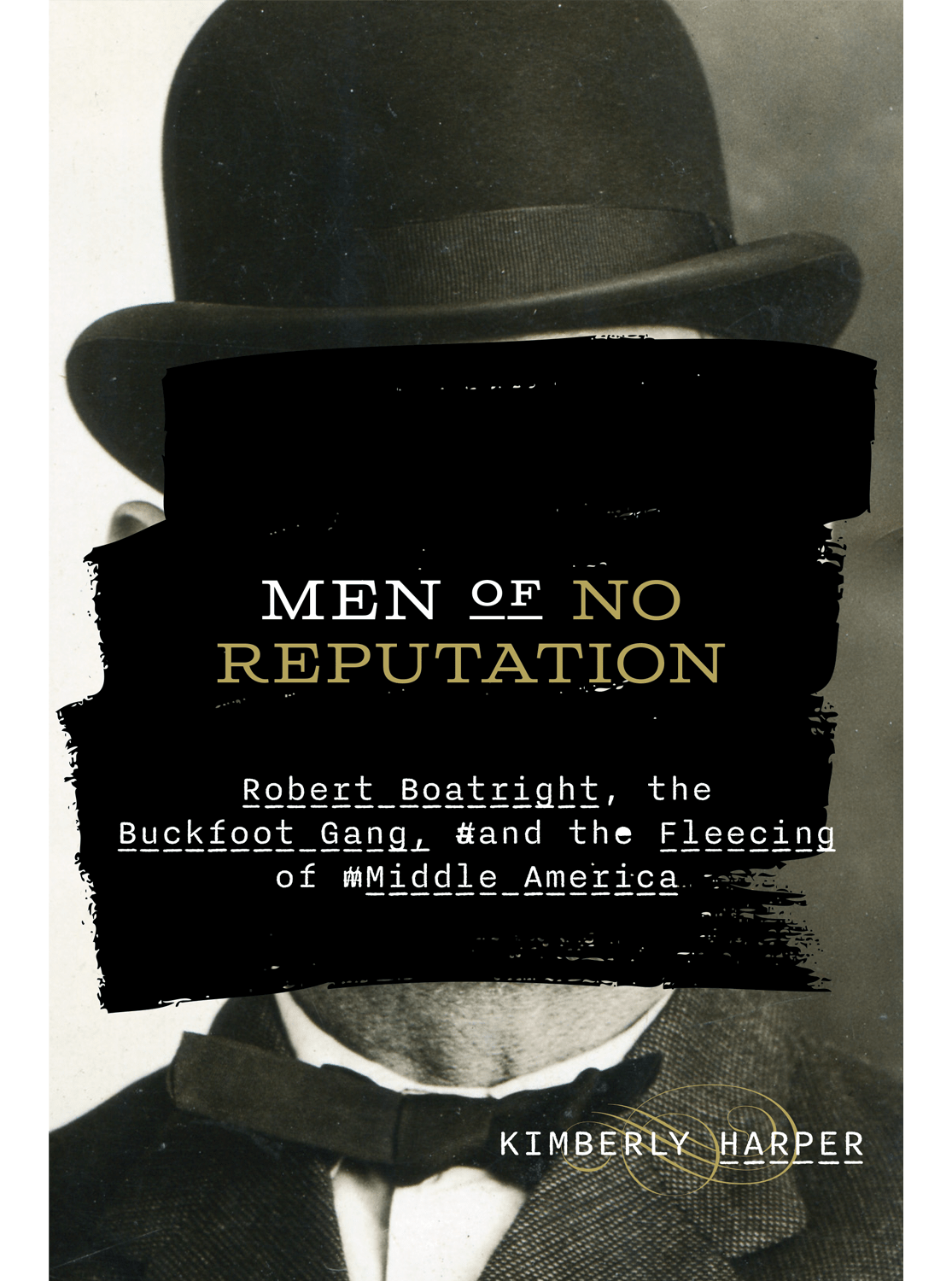Men of No Reputation: Robert Boatright, the Buckfoot Gang, and the Fleecing of Middle America by Kimberly Harper has been reviewed in the October 2024 issue of the Missouri Historical Review.
“Harper’s dogged research in archives, court records, and newspapers across the central and southern heartland reveals the underside of a nation built by men on the make—both con men and their marks. … Harper’s excellent research should disabuse any reader of the idea that somehow the small towns and medium-sized cities of the American heartland were immune to the worldly ways of tricksters, gangsters, and confidence men. As Men of No Reputation convincingly demonstrates, Midwest communities of all sizes offered fertile ground for gambling, rigged athletic contests, bribery, collusion, and the eternal hope of getting something for nothing. Although Harper avoids sweeping statements, it is not too much of a stretch to say that the confidence man—from P. T. Barnum in the early republic to the wire con in the Great Depression and in other forms to the present—is as American as apple pie.”
—Susan Curtis, Missouri Historical Review, October 2024
Swindler. Murderer. Scoundrel. Robert Boatright was one of Middle America’s greatest confidence men. Although little remembered today, his story provides a rare glimpse into America’s criminal past. Working in concert with a local bank and an influential Democratic boss, “this dean of modern confidence men” and his colorful confederacy of con men known as the Buckfoot Gang seemed untouchable. A series of missteps, however, led to a string of court cases across the country that brought Boatright’s own criminal enterprise to an end. And yet, the con continued: Boatright’s successor, John C. Mabray, and his cronies, many of whom had been in the Buckfoot Gang, preyed upon victims across North America in one of the largest midwestern criminal syndicates in history before they were brought to heel.
Like the works of Sinclair Lewis, Boatright’s story exposes a rift in the wholesome midwestern stereotype and furthers our understanding of nineteenth- and twentieth-century American society.
Kimberly Harper earned a master’s degree in history from the University of Arkansas. She received the Missouri Humanities Council’s Distinguished Achievement in Literature (Non-Fiction) Award for her book White Man’s Heaven: The Lynching and Expulsion of Blacks in the Southern Ozarks, 1894–1909.

